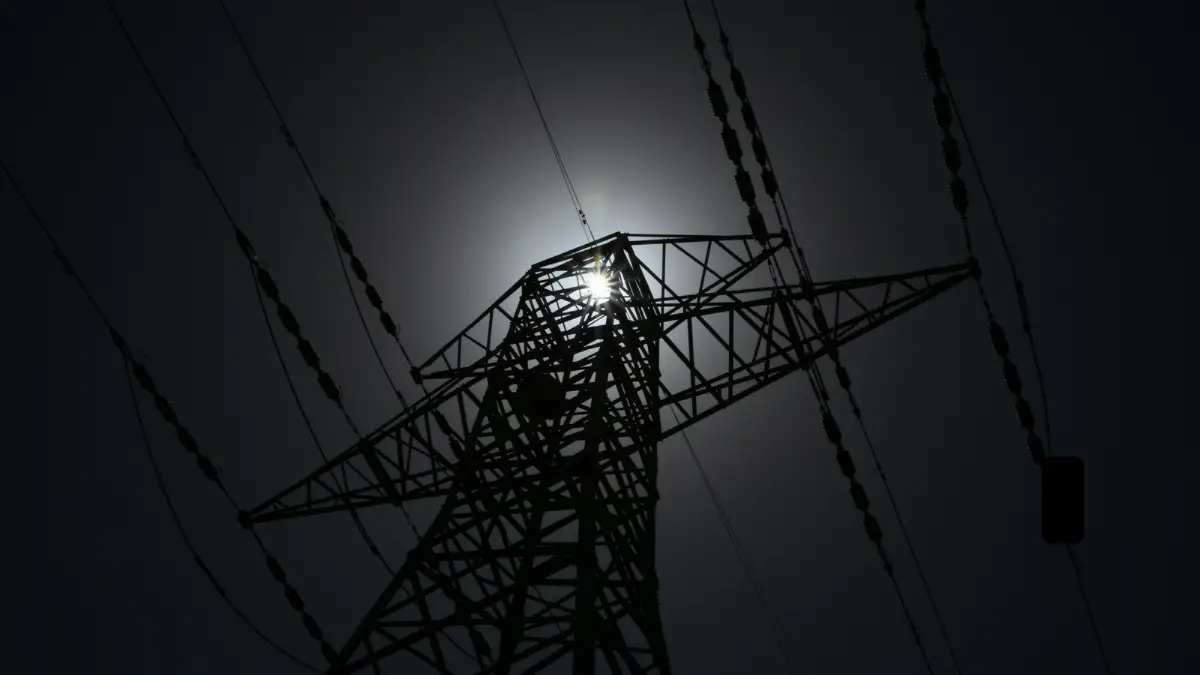In October 2024, the entire region of Northern Nigeria was plunged into darkness. The problem started with the persistent collapse of the country’s National Grid.
After a few days of denial, the Transmission Company of Nigeria came out to tell the country that the north, which is home to more than 100 million Nigerians will be without electricity for an indefinite period of time. The cause? Bandits had vandalized the two lines supplying electricity to the region.
In what started as a normal hourly blackout, the hours gradually turned into days, and days turned into weeks. Nigerians living in the north are faced with an unprecedented and wide-scale power outage that will never be forgotten.
This essay will be a chronicle of how the absence of an essential utility, such as electricity, can alter the social life of a people on a large scale.

Effects of National Grid Blackout
Water Scarcity Loomed
The first casualty of the electricity crisis in the north was the water supply. The power outage meant that all water boards in different states of the North were unable to power their water treatment plants and subsequently pump water to households.
In fact, the failure of these water boards was expected because as it is, many Nigerians have since moved on from relying on water boards for their water needs.
Nigerians resort to drilling boreholes in their houses for private use. Unfortunately, this power outage meant many households could not power their boreholes and had to resort to using generators. And this is where things got tricky. Fuel subsidies have been removed and a gallon of petrol sells for 7,000 Naira. This effectively means many Nigerians were unable to fuel their generators for water.
The next option was resorting to water vendors. These vendors took charge of the electricity crisis and hiked their prices, blaming it on the increased traffic they pay at collection points.
Nigerians who lived in slums had it a lot worse as many resorted to fetching untreated water from ponds and rivers.
In Kano, many reports were received of women trekking kilometers just to fetch puddled water for their domestic use.
Increased Psychological and Social Stress
Nigerians are used to blackouts because the country faces perennial power issues. But the case of the blackout in the North is different as it is a period where for the first time in our experience, more than 12 states are without electricity supply.
The cause of the problem, which is banditry makes the case even more alarming and traumatic for Nigerians living in the north. For many years, the bandits have been ravaging villages. They have been killing women and children, abducting people eradicating entire lineages, and burning whole homesteads to the ground.
For more than ten years, this problem has persisted with no end in sight. Now add the fact that these terrorists can vandalize critical national infrastructure that plunges a hundred million people into unprecedented hardship is worrisome for the emotional state of mind of all Nigerians in the north.
As it is, the entire region, along with its economy and social life has been held to ransom by these bandits. And the government seems to have little grasp as to how to end the problem.
Now northerners are forced to cope with the increased hardship caused by subsidy removal, the high cost of food and living, the prolonged problem of insecurity, and now the absence of research utility in electricity.
There is nowhere in the world 100 million people will be left without electricity and the government will act as if everything is normal. Even Ukraine which has been at war with Russia since 2022 has never experienced this level of blackout being experienced in Northern Nigeria.
The situation points to one undeniable fact, all is not well with Nigeria and something needs to be done about it as a matter of urgency.
From Electric Refrigeration to Natural Preservation
The advent of electricity and refrigerators has made life easy for housewives and houseowners. It enables those with refrigerators to cook food in advance of when it will be consumed. This is because the food can be saved for a substantial period in the refrigerator.
The electricity blackout in the north caught many fridge owners unaware as many of their valuables stored in the refrigerators had to be consumed there and then or risk the chance of having it spoiled and decaying.
Many stockfish and meat sellers were forced to sell their goods at a very discounted rate due to this blackout. While many businesses which depended on ice and cold drinks were brought to their knees.
It became virtually impossible at one point to find a chilled bottle of Coke in neighborhood shops. Housewives were forced to cook only that which can be consumed now and avoid excesses.
The historically proven method of using salt for preservation and open-air drying of vegetables became common practice during this blackout as households kept looking for ways to avoid further losses on their perishable items.
Small Business Count Their Losses
As electricity is the lifeline of the economic life of every industrialized nation, its absence is guaranteed to generate a substantial strain on the operations of many businesses.
Although the north is not as industrialized as it ought to be, no thanks to the many years of neglect it has received at the hands of her leaders, the electricity blackout sent out massive waves in the ways businesses operated.
Prices of essential services such as grinding of cereals, on which millions of people in the north feed, rose astronomically. According to reports, the cost of grinding a bag of maize rose from 2,000 to 10,000 in some places. This placed serious stress on the finances of low-income earners who depend on these cereals for nourishment.
Business owners such as vulcanizers, welders, and hair salon owners recorded an all-time low sales. Due to the electricity blackout, these service providers had to hike their prices to run on generators, and in turn, customers opted not to patronize these services as they are not essential and wait for the resumption of power supply.
Renewed Opportunities for Alternatives
While small businesses are counting their losses, other businesses are smoking to the bank during this prolonged blackout.
The business of solar energy source installation has boomed. With the cost of solar panels, batteries, and inverters recording a near 100% surge in prices. Power banks have now become a necessity and everywhere you turn, you are guaranteed to find at least one person holding a power bank in his hands.
Those in the business of commercial charging centers recorded astronomical amounts of sales. These shops have become a marketplace of phone owners queuing from morning to dusk struggling to charge their mobile phones. As expected, the price of charging a single mobile phone rose from N100 to N200 while power banks are charged as high as N500.
As the country is already experiencing a serious economic meltdown, many people are unable to afford to charge their phones. Instead, they rely on the intermittent hours in which their neighbors who put on their generators plead for a chance to get their phones charged for free.
This situation has made things very uncomfortable for both the phone owners and their neighbors as it causes inconveniences. Many neighbors are reported to switch off their security lights when they are on the generator to eat off potential phone-bringers.
A sad realization of how fragile communal living now is has been exposed by this power outage as many people are seen to be concerned only with how to ease life for themselves and not their neighbors.
More Outdoors Activities Recorded
Television is an important piece of equipment that shapes and defines how families spend their free time. Certain shows, especially at night, bring families together to watch, and during the day, different programs or movies keep families entertained.
As a result of the prolonged blackout, many families found themselves without the rallying support of the television which kept them indoors. As such, many streets in neighborhoods recorded a high number of kids coming out to find entertainment and companionship from their fellow children.
Even elders found reason to come out to socialize with their Neighbors after working hours before the sunset.
During the night, children were seen trooping out to play under the beautiful lights of the full moon. And when the full moon’s light shrank, the light from solar-powered street lights provided illumination as they played street football and other long list of games.
The blackout, although it is an unfortunate situation, has been able to rekindle the spirit of communal plays and connections beyond digital and electronic gadgets.
Conclusion
The blackout being experienced in the north is a gleaming reminder of all that is not well with Nigeria.
Years and years of neglect of social problems have compounded to create an insurgency that is growing in scale to halt economic activities in an entire region.
The resilience of Northerners is being severely tested. While the region can come, they must not be allowed to continue sinking deep into the abyss.
The problem of Nigeria’s electricity supply needs to be addressed squarely and holistically, with the involvement of state governments as provided by law.
The north deserves peace and development and as it can be seen, none of such can be achieved as long as insecurity is allowed to continue ravaging the vastly rich region.
The North needs to be uplifted from its ruins and it is the task of all of us to do this!







